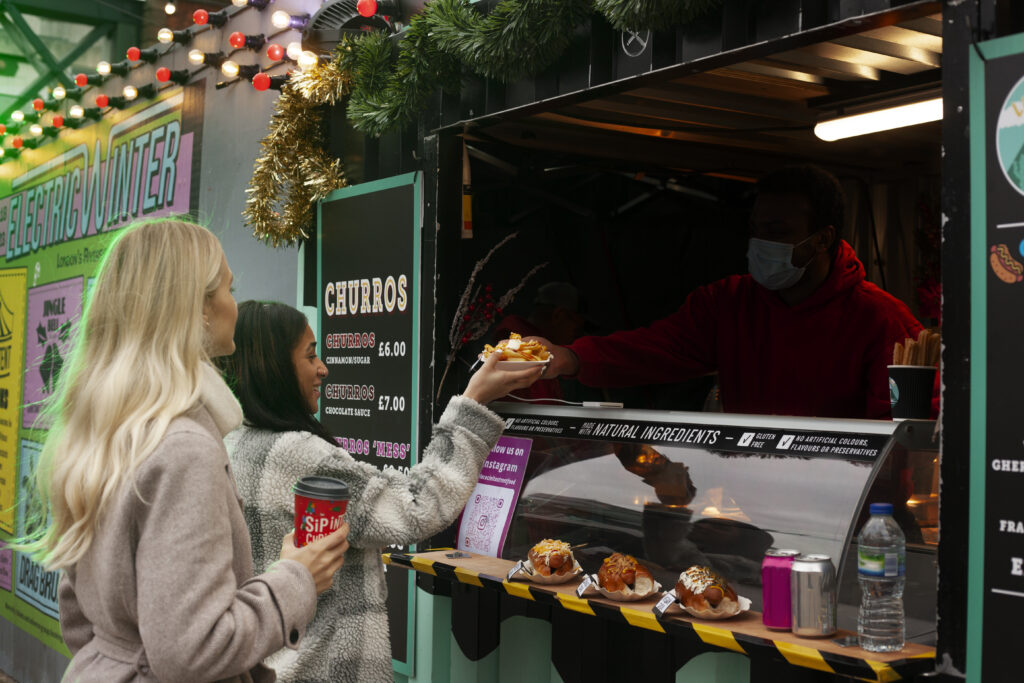Food Truck Fire Safety Business Requirements

Running a food truck involves cooking food and serving it on the go. While it is a thrilling and fun experience, it has its share of difficulties such as adhering to fire safety regulations, keeping fire safety equipment on board, etc.
Managing all these responsibilities becomes necessary to ensure fire safety on your food truck. Not following these safety protocols can lead to serious consequences such as damage to property and even loss of life.
Identifying Fire Hazards
In food trucks cooking operations are undertaken in confined spaces, thus the fire hazards that they face are also unique. Here are some common fire hazards in food trucks:
- Propane Tanks – Propane is often used for cooking in food trucks. While propane is efficient it is also highly flammable and can cause serious damage if not handled carefully.
- Grease Fires – Cooking oils and grease often stick to the kitchen surfaces and chimneys. This grease can catch fire quickly and spread rapidly, thus making grease a common hazard in food trucks.
- Electrical Fires – Overloaded circuits can cause electrical fires, especially in cramped conditions like food trucks.
Equipping Your Food Truck for Safety
Equipping your food truck with the right fire safety equipment is important for preventing and managing fires. Here are some safety equipments you must get for your truck:
- Fire Extinguishers – All food trucks must have a minimum of one Class K fire extinguisher which is designed to handle grease fires. Plus having a Class ABC fire extinguisher can help deal with other kinds of fires.
- Fire Suppression System – You can get an automatic fire suppression system installed above the cooking appliances. This can be quite useful for extinguishing flames and preventing the spread of fire.
- Smoke Detectors – Installing smoke detectors and checking that they are functioning properly is vital to ensure that they give an early warning in case of a fire.
Implementing Fire Safety Best Practices
Following best practices can reduce the risk of fire in your food truck by a huge margin. Here are some important food truck fire safety business requirements that you must follow:
- Routine Inspections – Inspect all cooking equipments, propane tanks and electrical systems regularly to make sure that they are in perfect condition. Replace any faulty parts immediately in case you notice any signs of wear and tear.
- Proper Ventilation – Ensure that there is adequate ventilation in your food truck. This can help prevent the buildup of grease and fumes, which can contribute to fire hazards.
- Cleanliness – Keep all cooking areas clean and remove any grease buildup that may have accumulated. Periodically clean hoods, vents and filters to reduce the risk of grease fires.
- Staff Training – Provide fire safety training to all staff members. Teach them how to use fire extinguishers and what steps to follow in case of a fire. Conduct periodic fire drills to ensure that all staff members know the evacuation plan.
- Emergency Response Plan – Create a detailed fire safety plan with steps included about what should be done in case of a fire. Share the plan with all staff members so that they can get familiar with it.
- Regulatory Compliance – Food truck operators must comply with the fire safety regulations set up by the local authorities. You must refer to the NFPA articles to stay compliant with necessary fire safety inspections.
- Permits and Licenses – Get all the necessary permits and licenses needed for running a food truck, including the ones related to fire safety.
Fire safety is an important aspect of operating a food truck business. By equipping your truck with the necessary fire safety equipment and following best practices, you can substantially reduce the risk of a fire. Partner with FireMaster for comprehensive fire extinguisher service, kitchen hood cleaning service, duct cleaning and more.
